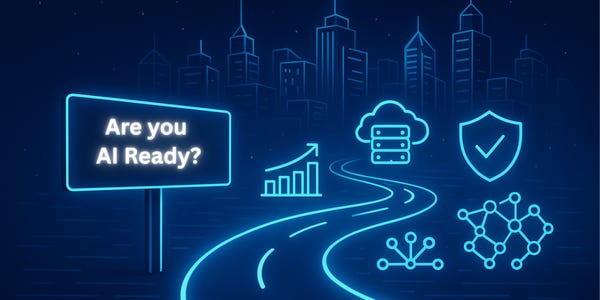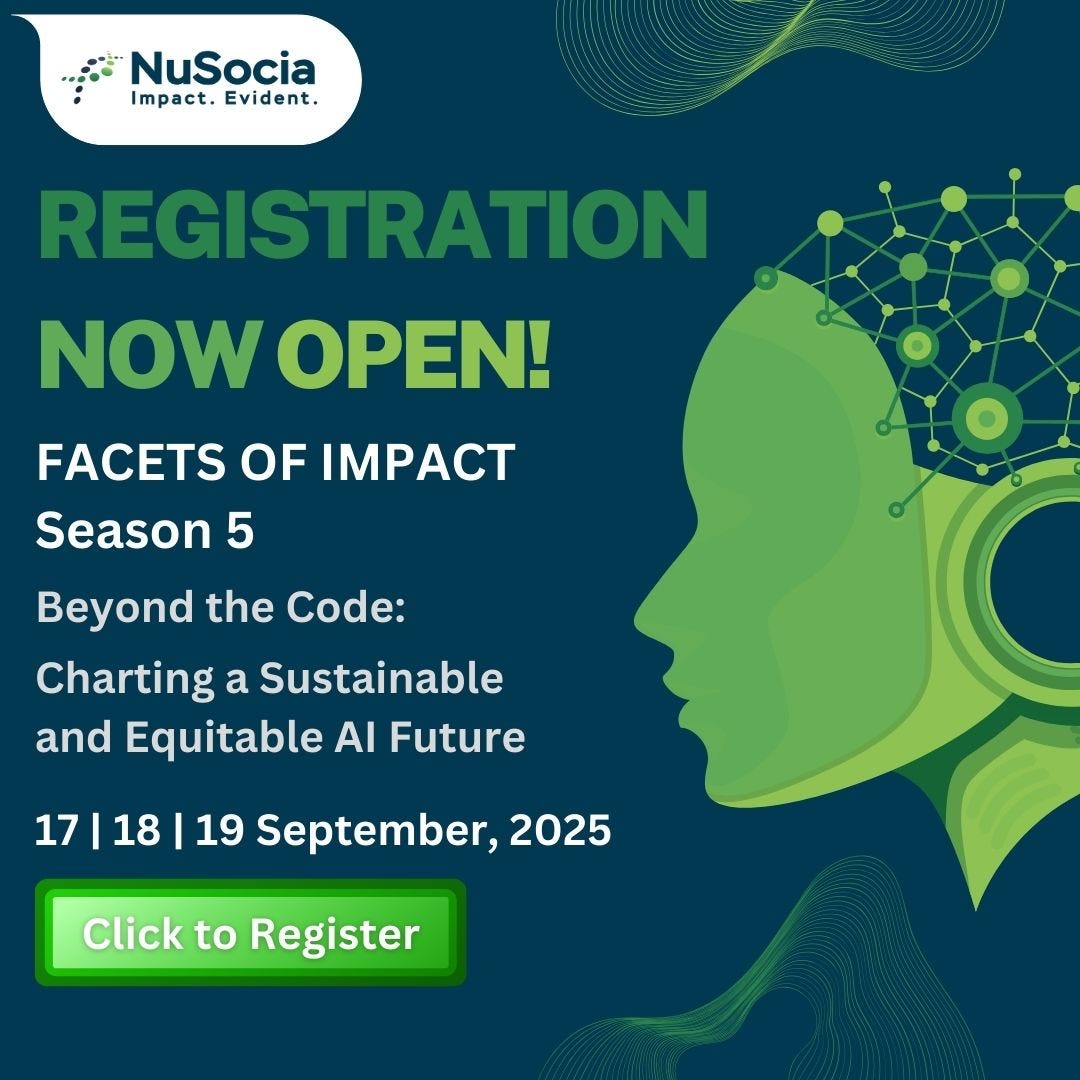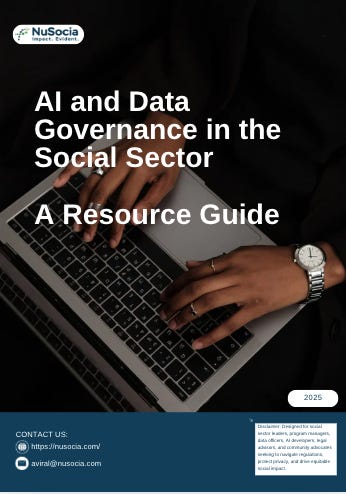The Impact Post | Your Organization's Guide to be AI-Ready
Issue # 56 | Monday, 15 September 2025
Get ready to become AI-ready!
This edition of Impact Post is packed with the tools, resources, and insights you need to navigate the world of artificial intelligence.
We've curated an issue that's both practical and thought-provoking. We'll start by breaking down how AI can tackle the everyday challenges that non-profits face. Then, as you consider taking the next step, our research team will provide you with a detailed data governance framework to help you seamlessly integrate AI into your workflow.
But it's not all technical. We've included a piece from our project team that humorously contrasts the perception of AI in urban boardrooms (Artificial Intelligence) with its meaning in rural India (Artificial Insemination). Our Gender COE, highlights the importance of inclusive technology development–a topic we explore further in a fascinating case study. Plus, if you're feeling overwhelmed by open-source technologies, we have a clear framework to guide you.
And before you go, don't forget to check out our events page for details on our annual event, Facets of Impact. We have some truly promising discussions on the horizon, curated specifically for you.
Happy Reading!
AI Tools for Non-Profits
In this video, Aviral Apurva, CTO at NuSocia explains how Artificial Intelligence can help nonprofits overcome day-to-day operational challenges. He also outlines key steps for nonprofits to integrate AI ethically and effectively. Join Aviral Apurva this Septemeber 17th for his Master Class in NuSocia’s Facets of Impact Season 5. To learn more, check out the details below in NuSocia Pulse.
Leveraging AI for a More Inclusive World
In this article, the Gender COE, takes the example of Google's Project Euphonia and the Relate app, to explain how AI assisted technology can be made more inclusive for individuals with speech impairments. It demonstrates a shift from "assistive technology" to building accessibility directly into design, emphasising personalised AI models trained on diverse speech data.
Advantages and Disadvantages of Open Source in the Social Development World
Open source offers social development organisations benefits like cost efficiency, transparency, and customisation, enabling innovation and equity. However, it also presents challenges such as capacity gaps, support fragility, and sustainability risks, requiring a strategic approach to adoption. This article guides the readers on when to use open source technology in your organization.
AI in India’s Digital Skilling Landscape: A Tool for Inclusion or a Widening Divide?
The NuSocia Translational Center recently completed a study on India’s supply and demand gap in digital skills. Based on these findings, the NTRC goes one step further to understand how the advent of AI complicates these findings, and what’s the next strategy for stakeholders in the world of skilling. To learn more about this topic and hear renowned actors in this space, join us on September 18th for our Facets of Impact Webinar, details given below.
NuSocia Pulse | Your Resource Center
We are back with season 5 of Facets of Impact- Our annual discussion series. This year we will be focussing on the theme: Beyond the Code: Charting a Sustainable and Equitable AI Future.
This year we bring you a Master Class and 2 webinars. Secure your spot today!
AI and Data Governance in the Social Sector: A Resource Guide
To help your AI journey, the NuSocia Translational Research Center has put together a guide to help navigate you through regulations, policies, and user best practices when it comes to integrating tech and AI into your social development programs. This guide identifies current regulations and policies in India and translates them into actionable outcomes and steps for each phase of a social impact program
Your Monday AI Laughs
This article humorously contrasts the perception of "AI" in urban boardrooms to (Artificial Intelligence) with rural India (Artificial Insemination). It then envisions how AI, as in Artificial Intelligence, could profoundly and practically impact rural Indian life by 2035, from livestock care to village governance.









